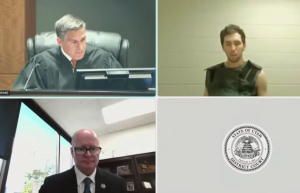Taxpayers, via the National Institutes of Health, are shelling out $406,875 to study whether text message reminders can effectively encourage Latino men to exercise.
Mexican American "men may have limited access to public health interventions promoting [physical activity]. To address these rising health disparities, effective interventions that leverage state-of-the-art technology, theory, and methods are needed for [Mexican American] men," according to the grant for the "low-cost" study, which is being conducted by the University of California, San Diego, reported The Washington Free Beacon.
The stated public health relevance is as follows: "Mexican American men report high rates of inactivity and related health conditions. The proposed study seeks to promote physical activity among this at-risk, understudied population by developing interactive and tailored text-messages to enhance a print-based physical activity intervention for Spanish- speaking [Mexican American] men. The proposed high reach, low cost strategy for increasing physical activity has great potential for adoption on a larger scale and thereby positively impacting public health and eliminating health disparities."
Researchers first conducted a preliminary study using "culturally and linguistically tailored" print campaigns that encouraged Latino men to exercise, and after 12 weeks, only 40 percent of participants met the physical activity guidelines of 150 minutes per week, while 30 percent did not perform any exercise. In follow-up interviews, the men suggested adding a text messaging component to accompany print material and improve results.
The first phase of the study will use six focus groups to determine "content, frequency, and types of text messages desired, and to identify cultural themes to incorporate into existing and new materials."
Phase 2 will involve a six-month randomized controlled trial to test the Spanish language text messaging program against publicly available health education materials. Post-intervention qualitative interviews will the be conducted to solicit suggestions for improvements.
As the study is only in the preliminary trial stages, taxpayers may have to shell out even more on the program should it be employed on a larger scale, according to The Examiner.
© 2025 HNGN, All rights reserved. Do not reproduce without permission.








